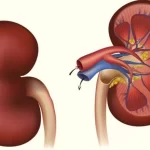Pneumonia symptoms and treatment
Pneumonia symptoms-Pneumonia symptoms is an infection, pneumonia inflates air cells in one or both lungs. The air cells could also be crammed with fluid or pus (purulent material), pneumonia which causes cough or pus, fever, chills, and difficulty in breathing. differing types of organisms, including bacteria, viruses, and fungi, can cause Pneumonia symptoms.
These pneumonia symptoms are often seriously life-threatening. it’s most serious for infants and young children, people over the age of 65, and other people with health problems or weak immune systems.
Pneumonia symptoms
Pneumonia symptoms range from mild to severe, causing factors counting on the sort of germ and factors counting on your age and overall health. Mild signs and symptoms are often almost like cold or flu, but they last longer.
- Chest pain once you breathe or cough.
- Confusion or change in mental awareness (in adults 65 and older)
- Cough, which may cause phlegm.
- Fatigue.
- Fever, sweating, and cold.
- Below normal blood heat (adults over 65 years aged and other people with weakened immune systems)
- Nausea, vomiting, or diarrhea.
- Shortness of breath.
Newborns and infants may show no signs of infection, or they’ll vomit. There could also be fever and cough, appear unwell or tired and without energy, or may have difficulty breathing and eating.
Causes of Pneumonia symptoms
Many germs can cause Pneumonia symptoms. most ordinarily, the air we breathe contains bacteria and viruses. Usually, your body stops these germs from infecting your lungs. But sometimes these germs can strengthen your system, albeit your health is usually good. Pneumonia is assessed consistent with the sort of bacteria that it infects and where you get the infection.
- Community-acquired pneumonia is that the commonest type. It occurs outside hospitals or other health care facilities. this will be caused, such as
- Bacteria- the foremost common explanation for bacterial pneumonia is Streptococcus pneumonia. this sort of pneumonia can occur on its own or after a chilly or flu. It can affect a neighborhood of the lungs (lobe), a condition called pneumonia.
- Like bacteria, Mycoplasma pneumonia also can cause pneumonia. it always causes milder symptoms than other sorts of pneumonia. Mobile pneumonia is an off-the-cuff name given to the present sort of pneumonia, which is typically not severe enough to need bed rest.
This sort of Pneumonia symptoms is common in people with chronic health problems or weak immune systems, and in people that inhale large doses of organisms. The fungus that causes it is often found in soil or bird droppings and should vary counting on geographical location.
Hospitalized pneumonia
Some viruses that cause cold and flu can cause pneumonia. The virus is the commonest explanation for pneumonia in children under 5 years aged. the viral infection is typically mild. But in some cases, it is often very serious. Hospitalized pneumonia
Some people develop pneumonia during the hospital, where they live for an additional disease. Hospital-acquired pneumonia is often severe, because it could also be more immune to bacterial antibiotics, and since those that receive it are already ill. people that are on breathing machines (ventilators), often utilized in medical care units, are at high risk of this sort of pneumonia.
Health care acquisition pneumonia
Health care pneumonia can be a bacterial infection that occurs in people living in long-term care facilities. Who care in outpatient clinics, including renal dialysis centers. Aspire pneumonia is once you inhale food, drink, vomiting, or saliva in your lungs. Aspiration is more likely if something upsets your normal pharyngeal reflex, like a brain injury or swallowing problem, or excessive use of alcohol or drugs.
When to urge advice from the Doctor
If you’ve got difficulty breathing, pain, 102 F (39 C) or higher persistent fever, or persistent coughing, especially if you’re coughing.
Folks in these high-risk groups must seek medical advice, such as:
- Adults are older than 65 years aged.
- Children under 2 years aged with symptoms.
- People with underlying health status or a weak system.
- People receiving chemotherapy or taking medication that suppresses the system.
- For some older adults and other people with coronary failure or chronic lung problems, pneumonia can quickly become a life-threatening condition.
Risk Factors of Pneumonia symptoms
Pneumonia can affect anyone. But there are two age groups with higher age, like
- Children who are 2 years old or younger.
- People 65 years aged or older.
Other risk factors include
- If you’re during a hospital medical care unit, you’re at a better risk of pneumonia, especially if you’re on a machine that helps you breathe (a ventilator).
- If you’ve got asthma, chronic obstructive pulmonary disease (COPD), or a heart condition, you’re more likely to develop pneumonia.
- Smoking damages your body’s natural defenses against bacteria and viruses, which cause pneumonia.
- People that have HIV / AIDS, who have organ transplants, or who receive chemotherapy or long-term steroids are in danger.
Complications of Pneumonia symptoms
- Even with treatment, some people with pneumonia, especially in high-risk groups, may experience complications, including:
- Bacteria within the bloodstream- Bacteria entering the bloodstream from your lungs can spread the infection to other organs, potentially causing organ failure.
- If your pneumonia is severe, otherwise you have chronic underlying lung diseases, you’ll have trouble inhaling enough oxygen. While correcting your lungs, you’ll get to be hospitalized and use a breathing device (ventilator).
- Pneumonia can create fluid during a thin space between layers of tissue, which line the lungs and thoracic cavity (pleural). If the fluid becomes infected, you’ll get to remove it through the chest tube or be faraway from surgery.
- An abscess occurs when the pus forms within the cavity within the lungs. An abscess is typically treated with antibiotics. Sometimes, surgery or drainage is required with an extended needle or tube placed in an abscess to get rid of the pus.
Prevention of Pneumonia symptoms
To help prevent pneumonia symptoms, such as Vaccines are available to stop certain sorts of pneumonia and flu. ask the doctor about getting these shots. Vaccination guidelines have changed over time, so make certain to review your vaccination status with a physician albeit you initially receive the pneumonia vaccine.
Ensure that children are vaccinated
Physicians recommend a special pneumonia vaccine for youngsters under 2 years aged and a couple of to five years old, especially those in danger of pneumococcal disease. Children who attend child care centers should also receive the vaccine. Doctors also recommend flu doses for youngsters older than 6 months.
- To protect yourself from respiratory infections that sometimes cause pneumonia. Wash your hands regularly or use an alcohol-based hand sanitizer.
- Smoking damages your natural defenses against respiratory infections.
- Get enough sleep, exercise regularly, and eat a healthy diet.
Diagnosis of Pneumonia symptoms
The doctor may invite your medical record and do a physical examination, suggesting pneumonia to see for abnormal bubbles or crackling sounds to listen to your lungs with a stethoscope. If pneumonia symptoms are suspected, the doctor may recommend the subsequent tests, such as:
- Blood tests are wont to confirm the infection and check out to spot the sort of organism causing the infection. However, accurate identification isn’t always possible.
- This helps the doctor to diagnose pneumonia symptoms and determine the extent and site of the infection. However, it cannot tell the doctor what quite a germ is causing pneumonia.
- It measures the oxygen level in your blood. Pneumonia can prevent your lungs from transferring enough oxygen to your bloodstream.
- A sample of fluid from your lungs (sputum) is taken after a deep cough and analyzed to assist pinpoint the explanation for the infection.
If you’re over 65 years aged, the doctor may order additional tests within the hospital, or if you’ve got serious symptoms or health conditions. These may include, such as:
- If your pneumonia symptoms aren’t clearing as soon as possible, the doctor may recommend a chest CT scan to urge a more detailed image of your lungs.
- A fluid sample is taken from the pleural area by inserting a needle between your ribs and analyzed to assist determine the sort of infection.
Treatment of Pneumonia symptoms
Treatment of pneumonia symptoms involves treating infections and preventing complications. people that have community-acquired pneumonia can usually be treated reception with medication. Although most symptoms subside within a couple of days or weeks, the sensation of exhaustion may persist for a month or more. Specific treatments depend upon the sort and severity of your pneumonia symptoms, your age, and your overall health. Options include, e.g.
Antibiotics
These drugs are wont to treat bacterial pneumonia symptoms. It can take time to spot the sort of bacteria caused by your pneumonia, and selecting the simplest antibiotics to treat it. If your symptoms don’t improve, the doctor may recommend a special antibiotic.
Cough medicine
This medicine is often wont to calm your cough so that you’ll relax. Since cough helps to loosen and transfer fluid from your lungs, it’s an honest idea to not eliminate your cough. additionally, you ought to know that only a few studies have checked out whether over-the-counter cough medicines reduce cough thanks to pneumonia. If you would like to undertake a cough suppressant, then use rock bottom dose, which helps you to relax.
Fever
Reduce, pain relief, you’ll take them for fever and discomfort. These include drugs like aspirin, ibuprofen (Advil, Motrin IB, others) and acetaminophen (Tylenol, others).
When to be hospitalized (Pneumonia symptoms)
- Over 65 years old.
- Confused about time, people, or places.
- Your kidney function has decreased.
- Your systolic vital sign is below 90 millimeters (mm Hg) of mercury or your diastolic vital sign is 60 torr or below.
- When Your breathing is fast (30 breaths or a minute)
- The temperature is below normal.
- Your pulse is above 50 or above 100.
- You may be admitted to the medical care unit. If you would like to be placed on a breathing device (ventilator) or if your symptoms are severe.
Children may need to be hospitalized if:
- They are but 2 months old.
- Sluggish or excessively sleepy.
- Trouble breathing.
- Low blood oxygen levels.
- They appear dehydrated.






